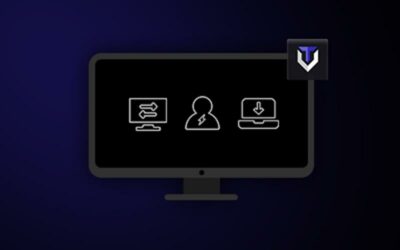The digital revolution has reshaped the way we work. Gone are the days of mandatory office commutes; today, a growing number of businesses are embracing remote work arrangements. This shift offers a plethora of benefits, including increased employee flexibility, improved work-life balance, and access to a wider talent pool. However, the transition to a remote workforce also introduces new security challenges that businesses must address.
The Evolving Landscape of Work: Security Concerns in the Remote Era
While remote work offers undeniable advantages, it expands the attack surface for cybercriminals. Unlike a controlled office environment, remote workers often access company data and systems from personal devices and unsecured Wi-Fi networks. This creates vulnerabilities that can be exploited by malicious actors.
Here are some of the key security risks associated with remote work:
- Unsecured Home Wi-Fi Networks: Many employees connect to work systems using their home Wi-Fi networks, which may not be adequately secured. Weak encryption or shared passwords can give hackers easy access to sensitive data.
- Phishing Attacks: Phishing emails remain a common threat. Remote workers can be more susceptible to these attacks as they may not be as vigilant when working outside the office environment.
- Malware and Ransomware: Malware and ransomware can infect devices used for work purposes, compromising data and disrupting operations.
- Data Loss Prevention: With employees accessing and potentially storing work data on personal devices, data loss prevention becomes a major concern.
- Insider Threats: Disgruntled employees or those with compromised devices can pose a significant security risk by intentionally stealing or leaking sensitive data.
Building a Secure Remote Fortress: Network Security Solutions
The good news is that a proactive approach to network security can significantly mitigate these risks and safeguard your remote workforce. Here are some essential network security solutions to consider:
- Virtual Private Networks (VPNs): A VPN encrypts data traffic traveling between a remote device and the company network, creating a secure tunnel over the public internet. This prevents unauthorized access to sensitive information even if a user connects to an unsecured Wi-Fi network.
- Endpoint Security Software: Endpoint security software, including antivirus and anti-malware solutions, plays a crucial role in protecting individual devices used for work purposes. These programs can detect and prevent malware infections, ransomware attacks, and other threats.
- Multi-Factor Authentication (MFA): MFA adds an extra layer of security to the login process. In addition to a username and password, users are required to provide a secondary verification factor, such as a code from an authenticator app or a fingerprint scan. This makes it significantly more difficult for unauthorized users to gain access to company systems.
- Cloud Security Solutions: Many businesses leverage cloud-based applications and storage solutions for remote work. Implementing robust cloud security measures, including data encryption and access controls, is crucial for protecting data stored in the cloud.
- Security Awareness Training for Employees: Educating your remote workforce on best cybersecurity practices is vital. Training programs should cover topics like phishing email identification, strong password creation, secure browsing habits, and reporting suspicious activity.
Beyond the Essentials: Additional Security Considerations
While the solutions mentioned above provide a solid foundation for remote work security, here are some additional considerations to bolster your defenses:
- Implement a Data Loss Prevention (DLP) Strategy: DLP solutions can help prevent sensitive data from being accidentally or intentionally leaked by employees. These solutions can monitor and restrict data transfers through email, USB drives, and cloud storage platforms.
- Enforce Strong Password Policies: Enforce strong password creation policies for all user accounts. Encourage employees to use unique, complex passwords and to avoid password reuse across different platforms.
- Restrict Administrative Privileges: Limit the number of users with administrative privileges on company systems. This minimizes the potential damage caused by compromised accounts with high-level access.
- Regular Security Audits and Updates: Conduct regular security audits to identify and address any vulnerabilities in your network and systems. Additionally, ensure timely patching of software applications and operating systems to address known security flaws.
Partnering with Techvera for a Secure Remote Future
The rise of remote work presents both opportunities and challenges. By implementing a comprehensive network security strategy that incorporates the solutions outlined above, you can empower your remote workforce and protect your valuable data.
Techvera offers a comprehensive suite of IT security solutions and services designed to help businesses of all sizes navigate the remote work landscape securely. Our team of security experts can assess your security posture, identify potential vulnerabilities, and recommend solutions that meet your specific needs.



